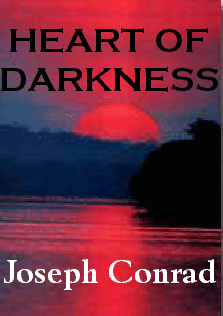Thursday, December 11, 2008
African Literature Final
(African Literature)
Instructor: Kat Thoms
Required Text:
Achebe, Chinua. Things Fall Apart. 50th Anniversary ed. New York City, NY: First Anchor Books Edition, 1994.
Forna, Aminatta. Ancestor Stones. New York City, NY: Grove P, 2006.
Ngozi Adichie, Chimamanda. Purple Hibiscus. New York City, NY: First Anchor Books Edition, 2003.
DAY EXPLORATION ASSIGNMENT
Day 1 Exploring Africa “Things Fall Apart” ch. 1-9
Day 2 African Culture “Things Fall Apart” ch. 10- 16
Day 3 Religion in Africa “Things Fall Apart” ch. 17-end
Day 4 African Government “Ancestor Stones” pg 5-103
Day 5 Women in Africa “Ancestor Stones” pg 107-249
Day 6 African Society “Ancestor Stones” pg 250-end
Day 7 Ancestor Stones “Purple Hibiscus” pg 1-110
Day 8 Purple Hibiscus “Purple Hibiscus” pg 111-206
Day 9 My Life “Purple Hibiscus” pg 207-end
Day 10 American Dream & Silence Group Projects
Day 11 Almost There Group Projects
Day 12 Last Day Party & Presentations
The unit will begin with some basic background on Africa. This will include geography and a brief summary of the colonization of Africa, the major players, important countries etc. Background knowledge will assist them when they read about the different issues, places and authors.
We will be exploring Africa and issues in Africa through three novels. “Things Fall Apart”, “Ancestor Stones” and “Purple Hibiscus.” Each of these novels discusses different aspects of African life and cultural issues. “Things Fall Apart” is first on the syllabus because it depicts more of the colonization period of Africa and the issues surrounding European invasion. Some important topics we will cover are religion, women, government, traditions and culture and men’s roles.
The course will then transition into “Ancestor Stones” where students will be introduced to a more graphic illustration of African culture. During this novel the class will focus mainly on women in Africa and the impact of religion and government on women. This portion of the class will deal with topics such as FGM, healthcare, religion, government and politics, education and slave labor. This novel is a bit longer than the other two, so if more time is needed there is an extra day for make-up or class projects. I also introduced the final group projects in this section. Students will be assigned groups and for the rest of the unit they will be working together to research and design a presentation for the class on designated topics.
The transition from “Ancestor Stones” to “Purple Hibiscus” should be easy because both novels have female characters and have similar issues. In the “Purple Hibiscus” section we will be focusing more on individual life in Africa and how that is affected through religion, government, family and education. Students will compare their own lives to character lives in the novel. We will also compare African life to American life and discuss the importance of the characters wanting to come to America.
Finally, at the end of the unit we will have a class celebration with African food, movies and the presentations of group projects.
....................................................................................
As you can see I chose to design a curriculum based on African Literature. For my class I chose "Things Fall Apart", "Ancestor Stones" and "Purple Hibiscus." My students will be engaged in learning and exploring African culture through these novels and hopefully open their minds and eyes to the world around them. I also include a film: Women with Open Eyes that shows women's role in African culture. As well as a group project designed for students to explore a major issue in Africa.
Thursday, December 4, 2008
Positive Change in Africa
VOLUNTEER KENYA:

This program has been implemeting and supporting community development programs in rural Kenya since 1998. They run community development, education and healthcare programs in these areas with volunteers and local Kenyans. Through their education program they have established a primary school that holds pre-school through fourth grade. The school has over 300 students and once again is run by local Kenyan's and volunteers. The school, Epico Jahns Academy, has made huge impacts on the community, and even provides the students with lunch.
GENERATION FOR CHANGE AND GROWTH:

Generation for Change and Growth's (GCG ) goal is to create opportunities for education for poor children and those in remote African areas through teachers, administrators and volunteers. They provide motivation and the opportunity for the acquisition of good education. This organization incorporates technology into the classrooms they influence. computers, overhead projectors and teaching aids are all used. They also provide scholarship programs to international colleges and universities for their students after completion of secondary education.
There are many many more that have positive influences in Africa, however, my final project (I think) will have more information and tidbits for you!
Thursday, November 20, 2008
Child Soldiers

So Child Soldiers...
There is so much to say about children in Africa and their role in the fighting that occurs there. We read about Johnny Mad Dog this past week which was a sad story about a young man who was persuaded into a rebel army and fought with fierceness and no compassion. The speaker we had on Tuesday pointed out that most child soldiers were between the ages of 9 and 13, which was a little different from the book because Johnny was 16. The most crazy thing the speaker said was about how the rebels after brainwashing and abusing the kids, just throw them out to the curb. This showed me just how unorganized and insincere these rebel groups are. The speaker also said that in the governmental military a child must be 16-18 to fight. A couple of websites I visited were pleading for help and money to support these children who were brainwashed by these rebel groups. INRI is an organization that coordinates human affairs in African countries. This website gives a little background as to why children are targeted by these groups. They claim that children are cheap and obedient fighters and are easy to manipulate because of their youth and inexperience. There is a shortage of "eligible men", which causes them to turn to boys and girls and arm them with weapons. One important point they also pointed out was that there is no enforcement of taking children for soldiers. There are regulations and laws, but little action is taken to prevent the abduction of children.

Another website I found really useful and is taking action against child soldiers is www.child-soldier.org. This website claims that at one time more than 300,000 children are fighting in Africa.
Child soldiers are often abducted from their homes, schools or communities and forced into combat, usually by rebel groups or paramilitary militias. Sometimes they are accepted as 'volunteers', although UNICEF makes the point that few children who join armies are really 'volunteers': minors who are forced to fight are often poor, illiterate and from rural or otherwise marginalised communities. In such circumstances, signing up with fighting groups may seem more attractive than the dismal alternatives.
Monday, November 17, 2008
Johnny Mad Dog



http://www.youtube.com/watch?v=xyLHGlUN9rM
Wednesday, November 12, 2008
Energy Consumption in Africa

- improvement of the traditional usage of biomass
- promotion of natural gas consumption
- facilitating access to electricity in rural environments
- establishing technical, legal and fiscal conditions that facilitate oil and gas productions
- providing the means to enable maintenance of refinery facilities
- searching for solutions that enable producers and distributors to effectively deal with
- the uncontrollable fuel price fluctuations.
Saturday, November 8, 2008
The Bleeding of the Stone

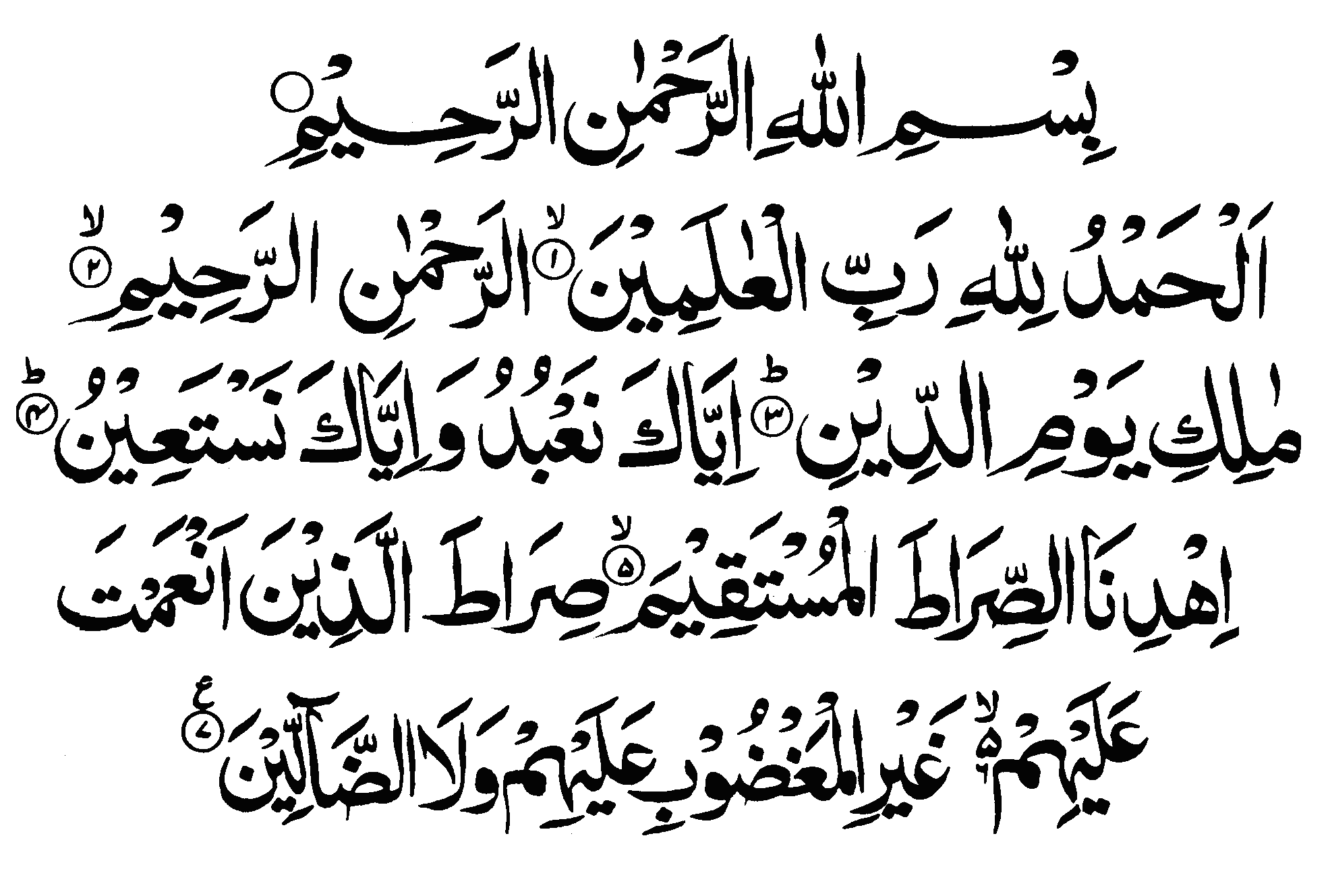
Thursday, November 6, 2008
Current Issue: HIV\AIDS

Finally after the belated western world media gave Africa some attention, multinational pharmaceutical companies began lobbying in developed countries. However this soon revealed that these companies were more worried about profit rather than Africans, because they would not allow African nations' to use generic versions of the namebrand drugs they had.
"Currently, treatments, which Medicines Sans Frontiers describe as having “transformed HIV/AIDS from a death sentence to a chronic disease in developed countries”, are expensive and affordable by mainly the wealthier people in western countries. However, poor people—including those in industrialized nations—are the major victims of HIV and AIDS."
 In 2000 the Export-Import Bank of the US gave Africa one billion dollars to finance the purchase of U.S HIV\AIDS medications. However this heroic effort was also thrown unfairly because three countries: Namibia, South Africa and Zimbabwe were rejected the offer.
In 2000 the Export-Import Bank of the US gave Africa one billion dollars to finance the purchase of U.S HIV\AIDS medications. However this heroic effort was also thrown unfairly because three countries: Namibia, South Africa and Zimbabwe were rejected the offer. Abstinence-until-marriage: refraining from sexual intercourse until marriage, or returning to
abstinence after a period of out-of-wedlock sexual activity
Be faithful: committing to having sex with only one partner and avoiding casual sex; avoiding
“grazing”
Condoms: using condoms correctly and consistently. “C” also represents comprehensive
prevention.
The ABC approach is the HIV prevention model used by many organizations, including UNAIDS
and PEPFAR." ( globalaidsalliance.org )
In many countries, women and girls are the primary caregivers for their families. However,
when they are prevented from accessing resources or learning about nutrition and health,
entire families suffer. Additionally, lack of education is often a barrier for women who are
attempting to leave an abusive relationship.
Eliminating school fees is a crucial first step to improving girls’ education. By eliminating these
fees, all families will be able to afford to send their children to school. Girls who receive an
education are more likely to be economically independent and understand the risks and
prevention methods of HIV. Further, when educated girls grow up and have families of their
own, they will be more likely to send their children to school, helping to break cycles of abuse
and poverty."
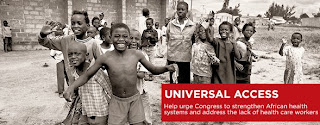 In my opinion this is huge. Later in the website it gave some more facts about AIDS prevention and education in Africa among young girls.
In my opinion this is huge. Later in the website it gave some more facts about AIDS prevention and education in Africa among young girls.Millions of young people lack accurate information about HIV/AIDS, and girls tend to be more poorly informed than boys. But basic education can equip all children with the skills and knowledge they need in order to avoid HIV infection. Indeed, education links directly to safer behavior and reduced HIV infection rates, and experts agree that basic education ranks among the most effective-and cost-effective-means of HIV prevention. The Global Campaign for Education estimates that if all children received a complete primary education, as many as 700,000 cases of HIV could be prevented each year."
Sunday, November 2, 2008
Waiting for an Angel
 This amazing stories brought up a lot of questions and interesting topics about Nigeria and the horrible history it has. I really liked the writing and how the story of Nigeria was told so I did some research on Helon Habila to see what I could come up with.
This amazing stories brought up a lot of questions and interesting topics about Nigeria and the horrible history it has. I really liked the writing and how the story of Nigeria was told so I did some research on Helon Habila to see what I could come up with. There were some themes to the book that I thought were very depressing and sad. For example the book starts in a prison cell with Lomba a seemingly innocent writer. It then moves to earlier history about a student who drops out of school, his closest friend loses his sanity in front of him, the terror the military brings, his novel never being finished and losing a woman to another man. This storyline spells out s-u-i-c-i-d-e! But not to worry there are undertones to this book that keeps the story moving and people from jumping out windows when they are finished reading it.
There were some themes to the book that I thought were very depressing and sad. For example the book starts in a prison cell with Lomba a seemingly innocent writer. It then moves to earlier history about a student who drops out of school, his closest friend loses his sanity in front of him, the terror the military brings, his novel never being finished and losing a woman to another man. This storyline spells out s-u-i-c-i-d-e! But not to worry there are undertones to this book that keeps the story moving and people from jumping out windows when they are finished reading it. My favorite character of the book had to be Aunt Rachael. In the beginning you see her as a compassionate aunt who takes her nephew in after his dad kicks him out. She feeds him and gives him a tutor for nothing. But later in the story we see her slipping, she begins drinking more heavily, and having more frequent outbursts. I don't blame her however, if someone left me like that I would be pretty depressed too. But! She is an amazing woman and bounces back. When Habila described her turning around I couldn't stop smiling. I thought of all the strong women in my life and all the women who have been through the same thing. Habila really captured the essence of womanhood and overcoming obstacles.
My favorite character of the book had to be Aunt Rachael. In the beginning you see her as a compassionate aunt who takes her nephew in after his dad kicks him out. She feeds him and gives him a tutor for nothing. But later in the story we see her slipping, she begins drinking more heavily, and having more frequent outbursts. I don't blame her however, if someone left me like that I would be pretty depressed too. But! She is an amazing woman and bounces back. When Habila described her turning around I couldn't stop smiling. I thought of all the strong women in my life and all the women who have been through the same thing. Habila really captured the essence of womanhood and overcoming obstacles. Wednesday, October 29, 2008
Black Gold

In the first article taken from National Geographic, I thought the title was a great opener. Curse of the Black Gold: Hope and betrayal of the Niger Delta. The hope part I sort of chuckled at because there was and is no hope for Nigeria. There are some very memorable and meaningful quotes throughout the essay I think are worth mentioning. The first comes from the first page when they are giving a brief introduction:
"The World Bank categorizes Nigeria as a "fragile state," beset by risk of armed conflict, epidemic disease and failed governance." From the World Bank website I found this new updates on their summary of Nigeria:
http://go.worldbank.org/KY8ZJIMB60
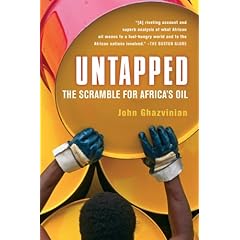 The second paper, Untapped: The Scramble for Africa's Oil, goes more into detail about why the big oil boom in Africa. One of the most interesting aspects I found in this essay was the blunt and horrid truth of it all. For example:
The second paper, Untapped: The Scramble for Africa's Oil, goes more into detail about why the big oil boom in Africa. One of the most interesting aspects I found in this essay was the blunt and horrid truth of it all. For example:Monday, October 27, 2008
Chief Roles

3. moral perversion; impairment of virtue and moral principles;
4. destroying someone's (or some group's) honesty or loyalty; undermining moral integrity;

Colonialism and Corruption in Sub-Saharan Africa:
"On the contrary, the practice of rewarding tax collectors became a principal
method for the accumulation of private property, a way of life that was hard to give
up which encouraged chiefs to abuse their office. As Leonard (1991: 29) put it,
colonial chiefs "were implicitly encouraged to use their positions to amass wealth
and demonstrate thereby that it paid to cooperate with Europeans".
"It was not the introduction of taxation per se, but the manner in which the tax
itself was collected, that encouraged corrupt behaviour. To collect taxes, the colonial governments mostly relied on local African leaders and especially chiefs.
Where chiefs did not exist or were unco-operative, new ones were appointed by the
colonial powers (Richards 1959; Crowder 1968). Above all, to motivate chiefs to
generate as much tax revenue as possible, and do so with zeal, the colonial
administrations allowed them to retain a part of it."
 "Although the two main colonial powers in the region, Britain and France, developed their own democratic systems during the 19th and 20th centuries, the political institutions they created in their African colonies were designed primarily as instruments of their domination and control. In most colonies, colonial administrative networks were grafted on to existing political institutions, and European hegemony and security were very closely linked. When they could be found, colonial administrations attempted to employ intermediaries, interlocutors- often known as "Chiefs"- to 'do their dirty work for them', that is, they were able to identify or, when neccessary, to create as authority figures the indigenous individuals who would be useful to the European goal of political and economic domination."
"Although the two main colonial powers in the region, Britain and France, developed their own democratic systems during the 19th and 20th centuries, the political institutions they created in their African colonies were designed primarily as instruments of their domination and control. In most colonies, colonial administrative networks were grafted on to existing political institutions, and European hegemony and security were very closely linked. When they could be found, colonial administrations attempted to employ intermediaries, interlocutors- often known as "Chiefs"- to 'do their dirty work for them', that is, they were able to identify or, when neccessary, to create as authority figures the indigenous individuals who would be useful to the European goal of political and economic domination."Wednesday, October 22, 2008
Ancestor Stones Part 2
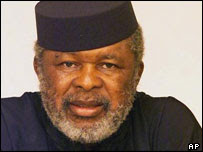
1997 - Peace deal unravels. President Kabbah deposed by army in May. Major Johnny Paul Koroma, in prison awaiting the outcome of a treason trial, leads the military junta - the Armed Forces Revolutionary Council (AFRC). Koroma suspends the constitution, bans demonstrations and abolishes political parties.
Kabbah flees to Guinea to mobilise international support.
1998 March - Kabbah makes a triumphant return to Freetown amid scenes of public rejoicing.
1999 January - Rebels backing Revolutionary United Front leader Foday Sankoh seize parts of Freetown from Ecomog. After weeks of bitter fighting they are driven out, leaving behind 5,000 dead and a devastated city.
1999 May - A ceasefire is greeted with cautious optimism in Freetown amid hopes that eight years of civil war may soon be over.
1999 July - Six weeks of talks in the Togolese capital, Lome, result in a peace agreement, under which the rebels receive posts in government and assurances they will not be prosecuted for war crimes.
1999 November/December - UN troops arrive to police the peace agreement
2000 May - Rebels close in on Freetown; 800 British paratroopers sent to Freetown to evacuate British citizens and to help secure the airport for UN peacekeepers; rebel leader Foday Sankoh captured.
2000 August - Eleven British soldiers taken hostage by a renegade militia group called the West Side Boys.
2001 January - Government postpones presidential and parliamentary elections - set for February and March - because of continuing insecurity.
2001 March - UN troops for the first time begin to deploy peacefully in rebel-held territory.
2001 May - Disarmament of rebels begins, and British-trained Sierra Leone army starts deploying in rebel-held areas.
2002 May - Kabbah wins a landslide victory in elections. His Sierra Leone People's Party secures a majority in parliament.
2002 July - British troops leave Sierra Leone after their two-year mission to help end the civil war.
2004 February - Disarmament and rehabilitation of more than 70,000 civil war combatants officially completed.
2004 May - First local elections in more than three decades.
2005 December - The last UN peacekeeping troops leave Sierra Leone, marking the end of a five-year mission to restore order.
2006 August - Date for elections set for July 2007.
2007 August - Presidential and parliamentary polls. Ernest Bai Koroma wins the presidency and his All People's Congress, formerly in opposition, wins a majority in parliament.

I cut some of the dates out because it was just too long. But this timeline was eyepopping! I mean that much destruction and turmoil lasting for over 10 years! Also the end of the timeline doesn't even stop at 2007, which means the country is still in a mess. I did some more research on Sierra Leone and this is what I found:

Reflections on the 1996 Sierra Leone Peace Accord
by Yusuf Bangura
"The signing of the peace accord in Abidjan (Côte d’Ivoire) on 30 November 1996 between the government of Sierra Leone and the Revolutionary United Front (RUF) marked the official ending of Sierra Leone’s five and a half years of war. The war, which ravaged much of the countryside, killed more than 20,000 civilians and left hundreds of innocent bystanders maimed and traumatized. It also displaced almost one and a half million people from their homes and livelihoods, orphaned thousands of young children, and imposed financial and social burdens on much of the relatively stable population. One major consequence of the war, which post-war reconstruction efforts will have to tackle very quickly and decisively, was the transformation of the country from a predominantly rural society into pockets of dense urban settlements. Medium-sized provincial towns such as Bo, Kenema, Makeni and Koidu suddenly became large urban settlements as villagers sought refuge in them. And the capital, Freetown, could well have grown from a pre-war population of roughly half a million people to one million—if not more."
This paper details the events leading up to the Peace Accord as well as what followed after. Ancestor Stones detailed a little of the turmoil happening in Seirra Leone with Serah's story, but after this new information I learned, I am surprised this character even left her house admist this horrible war. I didn't fathom the consequences she would have to deal with if things got out of hand. Her and her friend, plus any of the citizens that showed up that day to vote could have been killed point blank. And that is exactly what happened to most of the people during those times.
Monday, October 20, 2008
Ancestor Stones Women
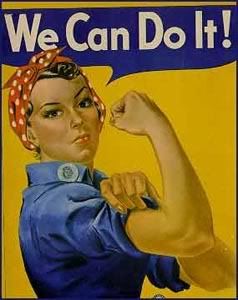

 "From that night and for the remainder of my pregenancy Osman never touched me again. I congratulated myself heartily on my cunning. I lay back on my bed...(120)."
"From that night and for the remainder of my pregenancy Osman never touched me again. I congratulated myself heartily on my cunning. I lay back on my bed...(120)."Sunday, October 19, 2008
Ancestor Stones Part 1
 The first 5 chapters of Ancestor Stones were very different from any of the other books we have read in class so far. They reminded me of the "Diary of...." books I used to read when I was younger. These books were set up as diary entries of young girls in the middle of important historical events, such as the trip across the ocean when Columbus made his discovery of America.
The first 5 chapters of Ancestor Stones were very different from any of the other books we have read in class so far. They reminded me of the "Diary of...." books I used to read when I was younger. These books were set up as diary entries of young girls in the middle of important historical events, such as the trip across the ocean when Columbus made his discovery of America.

Tuesday, October 14, 2008
Xala
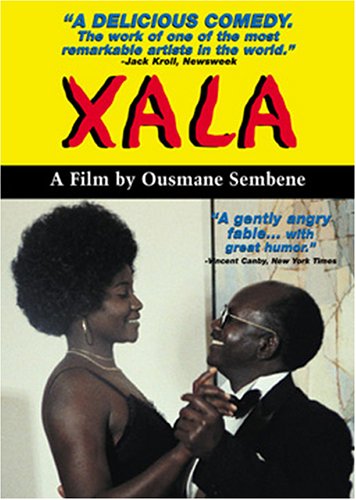 First I would like to comment on the literal meaning of 'xala' in the book. When I first saw the title and began reading I thought xala was going to be something to do with government or a saying that meant change. When I read that xala was a course of male erectile disfunction I literally laughed out loud. It was a twist thrown into the story I did not see coming.
First I would like to comment on the literal meaning of 'xala' in the book. When I first saw the title and began reading I thought xala was going to be something to do with government or a saying that meant change. When I read that xala was a course of male erectile disfunction I literally laughed out loud. It was a twist thrown into the story I did not see coming. 
Monday, October 6, 2008
How Europe Underdeveloped Africa [Education]


Friday, October 3, 2008
Bandung Conference
2. Respect for the sovereignty and territorial integrity of all nations
3. Recognition of the equality of all races and of the equality of all nations large and small
4. Abstention from intervention or interference in the internal affairs of another country
5. Respect for the right of each nation to defend itself, singly or collectively, in conformity with the charter of the United Nations
6. (a) Abstention from the use of arrangements of collective defense to serve any particular interests of the big powers(b) Abstention by any country from exerting pressures on other countries 7. Refraining from acts or threats of aggression or the use of force against the territorial integrity or political independence of any country
8. Settlement of all international disputes by peaceful means, such as negotiation, conciliation, arbitration or judicial settlement as well as other peaceful means of the parties own choice, in conformity with the charter of the united nations
9. Promotion of mutual interests and cooperation
10. Respect for justice and international obligations.
 These are the 10 points agreed upon unanimously called the "declaration on promotion of world peace and cooperation at the Bandung Conference of 1955." On April 18, 1955 a meeting of Asian and African states (which were mostly newly independent) was called into session by Ruslan Abdulgani. Egypt, Indonesia, Burma, Ceylon, the Philippines, India, Iraq and Japan organized this Bandung Conference in Bandung, Indonesia. The purpose was to promote Afro-Asian economic and cultural cooperation, opposing colonialism and neocolonialism by the United States, Soviet Union and any other "imperialistic" nation.
These are the 10 points agreed upon unanimously called the "declaration on promotion of world peace and cooperation at the Bandung Conference of 1955." On April 18, 1955 a meeting of Asian and African states (which were mostly newly independent) was called into session by Ruslan Abdulgani. Egypt, Indonesia, Burma, Ceylon, the Philippines, India, Iraq and Japan organized this Bandung Conference in Bandung, Indonesia. The purpose was to promote Afro-Asian economic and cultural cooperation, opposing colonialism and neocolonialism by the United States, Soviet Union and any other "imperialistic" nation.There were 29 countries delegates in attendance, what the conference reflected was a reluctance by Western powers to discuss with them on decisions affecting Asia and Africa. The major points concerned settling the Cold War in China and the French influence in North Africa. After much debate a consensus was reached that, "Colonialism in all of its manifestations" is to be condemned, implicitly censuring the Soviet Union and the West.
The Final Communiqué of the Bandung Conference pointed out the need for developing countries to loosen their economic dependence by providing technical assistance to leading industrialized nations for developmental projects and exchange of technical know-how.

The Non-Aligned Movement was established as an international organization of states that considered themselves neither aligned or against any major power country. It was founded in 1955, and as of 2007 it had 118 members. The purpose was to ensure "national independence, sovereignty, territorial integrity and security of non-aligned countries in their struggle against imperialism, colonialism, neocolonialism, racism, Zionism and all other forms of foreign aggression."
Wednesday, October 1, 2008
An Image of Africa
 After reading the essay by Chinua Achebe I was a little confused by some of the points he made. Although he was thorough and made a lot of good points a couple in particular stuck out to me as odd. On first read through my jaw dropped when point number 37 came up,
After reading the essay by Chinua Achebe I was a little confused by some of the points he made. Although he was thorough and made a lot of good points a couple in particular stuck out to me as odd. On first read through my jaw dropped when point number 37 came up,Racist?! I could not believe that this word was coming up among everything else that has been written about Africa. When I was reading Heart of Darkness I thought Marlow was a little odd in his explanations about the events happening but I never even considered that he was showing prejudice over the Africans. In Marlow's descriptions of the things happening to the African slaves I admit he was a little unemotional, but I didn't get the impression that he was uncaring. He seemed concerned at what was happening, but a little too involved in his own personal life and work to spend too much time on the people. In class we discussed that Marlow was outraged, yes this may have come after he thought about the situation, but his text didn't show lack of concern or prejudice.
 As far as the European minds deterioating, yes he spent time on the subject because if someone told you they wanted to measure your head before you went to Africa to see if it shrunk you would be baffled too. Marlow's opening line about this too being the darkest place on earth gives the first impression that what he saw and experienced in Africa was not happy and careless. He did notice the pain and suffering the Africans were put through but at the time he was more concerned with other things, namely Mr. Kurtz.
As far as the European minds deterioating, yes he spent time on the subject because if someone told you they wanted to measure your head before you went to Africa to see if it shrunk you would be baffled too. Marlow's opening line about this too being the darkest place on earth gives the first impression that what he saw and experienced in Africa was not happy and careless. He did notice the pain and suffering the Africans were put through but at the time he was more concerned with other things, namely Mr. Kurtz.  When this happened I imagined a dog pound. The abused animals are sitting there waiting to die of starvation and disease. Most people would not do anything to help these animals but observe what was happening and feel compassion for them. Maybe even offer them a piece of meat. This is exactly what Marlow was doing, observing but not acting. Marlow wanted this job, he wanted to meet Mr. Kurtz, speaking up about this horrible situation could get him kicked out of the Congo and out of a job. Like most people in his situation, he simply left well enough alone. If Conrad didn't care about the well-being of the African people he wouldn't have recorded this testimony in his book. He simply would have left well enough alone. The text itself has no other purpose except for historical reading about Africa. It cannot be mistaken for any other genre of literature, so it must have had an impact on him.
When this happened I imagined a dog pound. The abused animals are sitting there waiting to die of starvation and disease. Most people would not do anything to help these animals but observe what was happening and feel compassion for them. Maybe even offer them a piece of meat. This is exactly what Marlow was doing, observing but not acting. Marlow wanted this job, he wanted to meet Mr. Kurtz, speaking up about this horrible situation could get him kicked out of the Congo and out of a job. Like most people in his situation, he simply left well enough alone. If Conrad didn't care about the well-being of the African people he wouldn't have recorded this testimony in his book. He simply would have left well enough alone. The text itself has no other purpose except for historical reading about Africa. It cannot be mistaken for any other genre of literature, so it must have had an impact on him. "He was there below me and, upon my word, to look at him was as edifying as seeing a dog in a parody of breeches and a feather hat walking on his hind legs."
Monday, September 29, 2008
Heart of Darkness
 ten by Mr. Kurtz. The lines that he finds ominous are quite interesting.
ten by Mr. Kurtz. The lines that he finds ominous are quite interesting. 
Wednesday, September 24, 2008
A hero in Africa

After finishing King Leopold's ghost, one man in particular stuck out to me. Mr. William Sheppard. This man was a black American traveling to the Congo in the name of the church. The book claims that he was the first black man to travel to the Congo, and he taught Christianity for nearly 20 years. He went to the Congo with high hopes, not knowing what the Europeans were doing to the black people there. Finally, after two years of pleading he convinced the church to let him serve in the Congo (even though it was under another Minster, a white minister to be exact.) Unlike explorers before him Sheppard was genuinely interested in helping the native people. He and his fellow missionary started right away learning the language and traditions of the native people. He was delighted to be in Africa! "my people" he states "the country of my forefathers." This man even rode what was considered the first joi de vivre (bicycle) in Africa. While stationed at the mission Sheppard became very familiar with a isolated community known as the Kuba. He was the first foreigner to reach the town of Ifuca, the place inside Kuba where the king presided. He was accepted by the king because of his skin color and spent a great deal of time there. Foreigners before him were beheaded by the king and the country fought fiercely to keep intruders out. This must have been a highlight in Sheppard's life. He had been collecting Kuba art and tapestry and studying their culture, but to be accepted into it was another story. He wrote numerous accounts of their sophisticated political system and other aspects of their daily and political lives. Although Sheppard didn't make much headway with converting the Kuba people, the discoveries and popularity he gained from them was enough to keep him in the Congo.

William Sheppard's story doesn't seem very heroic at first glance, but after going back through this part of the book, I realized it wasn't the "heroic" actions he did it was the simplicity of his heart and actions. This man, unlike many before him was not after ivory, rubber or slaves, he was there to teach Christianity and learn more about the people of the Congo. He befriended them, learned their language and became a beloved "hero" to them. He didn't try to change their behavior or teach against it, he simply influenced through his charm and personality. Amidst all the atrocities and death, this man was one of their color and genuinely cared about the people. This African-American man whose father was a slave, practiced acceptance of the Africans like no missionary before him.
-Sheppard wearing a traditional European attire.
The definition of a hero is one who puts others before themselves, and although Sheppard originally went there for himself, he came back a hero of the Africans. He put his very life into learning their culutre and serving the people.
Sunday, September 14, 2008
King Leopold's Ghost -100


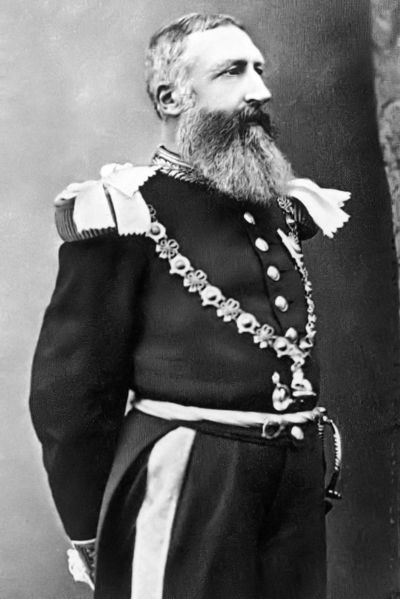 From the very beginning I didn't like this boy. The way the author described him made me want to skip over that chapter and continue on with Stanley. However further reading into the book proved that Leopold was a very imaginative character with many mysterious characteristics. His obsession with Africa had me wondering what he was really capable of if he had put his effort elsewhere; like ruling his country. His desire for these African colonies was ruining everything in his life. He had no relations with his wife, except the birth of his two daughters and no relationship with them either. He didn’t seem too concerned with the well being of his home country, everything was focused on his “Congo.” I thought it was interesting the way he fed off of Stanley’s emotions and skills to get him to explore for his small country. He had a peculiar way of playing with this famous explorer to get exactly what he wanted.
From the very beginning I didn't like this boy. The way the author described him made me want to skip over that chapter and continue on with Stanley. However further reading into the book proved that Leopold was a very imaginative character with many mysterious characteristics. His obsession with Africa had me wondering what he was really capable of if he had put his effort elsewhere; like ruling his country. His desire for these African colonies was ruining everything in his life. He had no relations with his wife, except the birth of his two daughters and no relationship with them either. He didn’t seem too concerned with the well being of his home country, everything was focused on his “Congo.” I thought it was interesting the way he fed off of Stanley’s emotions and skills to get him to explore for his small country. He had a peculiar way of playing with this famous explorer to get exactly what he wanted.
